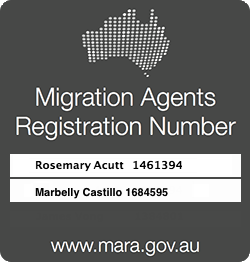If you have ever tried to apply for a visa in Australia, then it is likely that you have heard of IELTS.
IELTS stands for International English Language Testing System. It is a test to show how well a person speaks, reads and writes English.
IELTS is one of the few English tests recognized by the Department of Immigration for the purposes of migration (more on this testing monopoly later).
Tests are scored according to four different areas, listening, reading, writing and speaking. A score is given for each area and the average of those four scours will be give as an overall band score.
For the purposes of some visas, it is necessary to get a consistently high score in each band.
A client of mine dropped into the office today to advise that she had, once again, failed to achieve the necessary IELTS score needed to apply for her employer sponsored visa. She wanted to know what her options were. My hands are tied – without IELTS, the matter cannot proceed.
What I find interesting in this matter is that she has, across different tests, demonstrated the requisite score in each area, but never in a single test.
What I find more remarkable about this particular client is her ability to communicate with me in a clear and articulate fashion. It seems that English isn’t her problem, but rather her ability to cope under exam style situations.
At this point time, the law is clear in relation to IELTS scores – the relevant scores must be achieved in a single test.
The issue of aggregation of IELTS test results was considered in the case of Hadiuzzaman v Minister for Immigration & Anor [2007] FMCA 1266 (and indeed many cases since). This case and those that have followed indicate clearly that aggregration of IELTS test results is an approach not available under Schedule 6A of the Migration Act.
I do not question what is the law with respect to IELTS, but I do question why it is the law.
If we take out the semantics and think about broader policy issues behind English testing of potential migrants, the Government is (hopefully) trying to ensure that persons applying for visas have a level of English that enables them to function in our society at the requisite level according to their purpose (for example, work or study).
This would seem abundantly clear in the definitions of the various levels of English.
For example, a person regarded as having vocational English has ‘a reasonable command of the English language’, enabling them to ‘cope with overall meaning in most situations’. A person with competent English, the next step up, has a ‘generally effective command of the English language’. ‘They must be able to use and understand fairly complex language, particularly in familiar situations’.
By stipulating that a person must achieve the requisite scores in a single test, rather than up to four tests, are we REALLY testing whether a person is a reasonable command of the english language / is able to understand English in familiar situations or are we really testing their ability to cope under exam conditions?
At AUD $330 a test, the company running IELTS would undoubtedly argue that the requisite English can only be demonstrated if the candidate achieves the right score in a single test. After all, IELTS is big business.
I disagree.
I think it is time for Immigration to overcome their fear of paperwork and relax the need for IELTS scores to be achieved in one single test and allow for an aggregation of results across up to four tests.
As a native English speaker, I have not had to sit an IELTS test. However, having sat many exams (32 to be precise) as part of my law degree and associated studies, I sympathize with anyone who has difficulties coping under exam stlye conditions.
As the casual observer, there seems to be a certain amount of mystery surrounding IELTS. If you have ever sought to have your test reviewed, as one client lamented to me, then there is an impenetrable cloud of mystery.
In a bid to understand how the IELTS system works, I will be sitting one over the coming months.
If you have sat an IELTS test before, please share your experiences.
Is there an IELTS conspiracy, or have I just watched too much Scooby-Doo?
#IELTS




